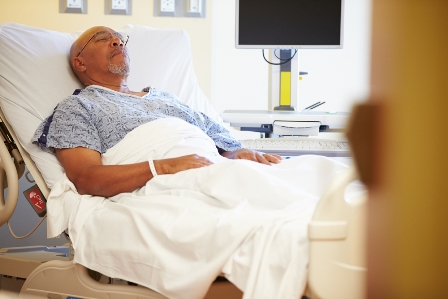Post-hospital Syndrome and the Readmissions Quandary
Posted on October 28, 2015 |

This post was written by Kristen Willard, M.S.
Post-hospital syndrome is a term coined only within the last decade, yet many might recognize the construct as one old as hospitals themselves. In a 2013 Perspective piece for the New England Journal of Medicine, Dr. Harlan Krumholz introduced post-hospital syndrome as “an acquired, transient period of vulnerability” precipitated by the physical and psychological stressors associated with the period of hospitalization itself. The syndrome compromises the physical and mental health of patients leading to poorer health outcomes.
Krumholz asserts that evidence for the existence of the phenomenon can be found in current rehospitalization data. Given that the vast majority of hospital readmissions are for a cause other than that which led to the index hospitalization, Krumholz believes additional factors must be at play (as of this posting, only 36% of patients first admitted for issues related to a COPD diagnosis are readmitted within 30 days for that same diagnosis). Bolstering his theory, he claims, is the fact that severity of the index condition does not reliably predict rehospitalization; that is, the severity of the illness that first brought a patient to the hospital does not seem to determine the likelihood that he will return.
Krumholz briefly outlines five distinct elements of hospitalization syndrome: sleep disturbance and deprivation; nutritional inadequacy; confusion as well as a general state of being overwhelmed without adequate resources to cope; pain and discomfort; and deconditioning due to decreased activity. He offers that health systems might address these vulnerabilities by not only ensuring each is attended to prior to discharge, but by proactively addressing each while a patient is under a hospital’s care.
In a 2015 Forbes article, Dr. Robert Pearl outlined the ways in which multi-disciplinary teams might do this in a standardized way:
- Increasing awareness among staff about post-hospitalization syndrome and delirium.
- Identifying those patients most at risk.
- Maximizing caloric intake and minimizing delays for those procedures requiring fasting.
- Limiting blood draws to only what is necessary.
- Encouraging support system visitation.
- Lighting patient rooms in keeping with outside lighting and minimizing noise and waking during sleeping hours.
- Ensuring any functional aids (e.g., glasses, hearing aids) are working and in use.
- Encouraging ambulation as frequently as possible.
- Addressing patient pain, if possible, through medications with minimal cognitive side effects.
While more data are needed to establish this as a valid construct, Krumholz believes the field need not wait for research to improve patient care. Quoted in an ACP Hospitalist cover story, he asks, “’What if we really did start to monitor how much sleep people got and how good their nutrition was and got them ambulating as soon as possible and we tried not to disturb their circadian rhythm? Could we do all that and still treat their acute illness and would they be doing better at the end? I would love to have places say, We'll try this and see what happens.’”
Let’s hear from the PRAXIS community: do you think “post-hospital syndrome” exists? Is your organization taking steps to address it?
Additional information and other perspectives can be found here:
'Post-hospital syndrome' could be increasing readmissions for older patients
REDUCing the trauma of hospitalization
An Evidence-Based Intervention to Reduce Post-Hospital Syndrome
This page was reviewed on March 5, 2020 by the COPD Foundation Content Review and Evaluation Committee